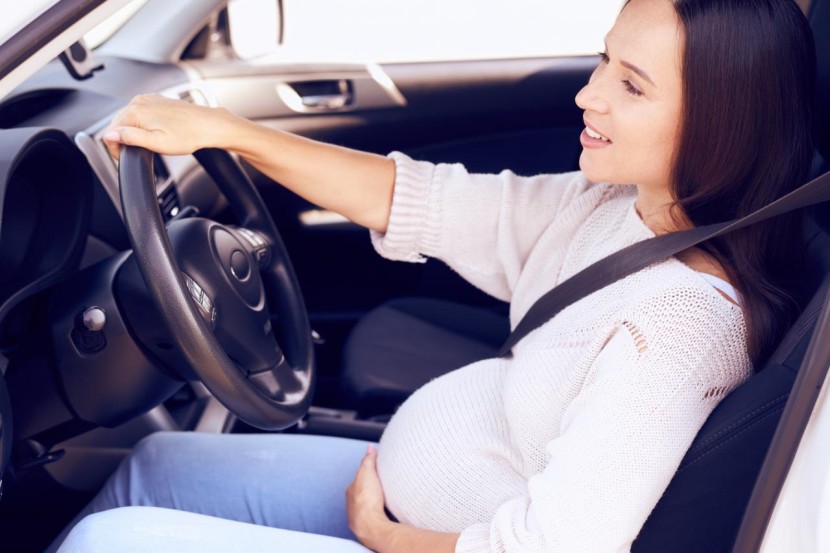
Being in a car accident can be terrifying, even if it's fairly minor. It can create anxiety about everything, from insurance-related worries to concerns over your health and whether or not there are any injuries.
These anxieties are increased even further if you're pregnant and you're in a car accident.
If you're pregnant and in a car accident, the next steps you should take and the potential injuries to ask your doctor about can vary, depending on the severity. For example, T-bone accidents may be more cause for concern than a rear-end accident that happens at a low speed.
T-bone accidents are what often occur at intersections and according to the Federal Highway Administration, around 40% of all traffic injuries occur at intersections. 50% of collisions at intersections are T-bone collisions.
Even if an accident is seemingly not serious, you may wonder if there are injuries to your unborn baby that you might not be aware of.
Most doctors don't discuss the details of driving while pregnant with patients, and it's often questioned whether this is something doctors should focus more on when they're discussing pregnancy with their patients.
Health professionals say they often get questions about things like being in hot tubs or exercising while pregnant, but rarely get questions about the potential dangers of driving while pregnant even though it's a much more significant risk.
It's estimated that thousands of pregnancies are lost every year as a result of car accidents. With this in mind, if you are pregnant you should exercise an abundance of caution while driving, and if you're riding with someone else, tell them to do the same.
Interestingly, there was also research that looked at the driving habits of pregnant women and found the risks of being in an accident went up in the second trimester. The last month of pregnancy ended up being the safest, according to that research. The crash rate in the second trimester was higher in urban areas as well.
The following are some of the important things to know if you're in an accident while you're pregnant.
Types of Injuries
If you're pregnant and in an accident, the primary concern in terms of injuries to the fetus is related to placental abruption.
Placental abruption is a condition in which the placenta either partially or fully separates from the uterus. It happens in around one in 150 pregnancies, and if you sustain trauma during a car accident, it can increase the risk.
Even if you're just in a fender bender, you should be aware of the potential for placental abruption and contact your doctor.
The womb offers some level of protection for a baby during sudden impact, but the jolt of slamming on breaks can cause the separation. You may not notice the symptoms of an abruption occurring either.
If you are in an accident and you go to the emergency room to be checked out, they may monitor you and the baby.
There is the risk of a miscarriage if you're in an accident as well, although this is fairly rare.
Fetal trauma can occur also. With fetal trauma, there can be injuries to a baby's brain or body, and they can have long-term effects.
Speak to Your Healthcare Provider
The first thing you should do, regardless of how serious or minor you think an accident might be, is speak to your health care provider.
Your health care provider is the person who's going to be able to best advise you and what steps you should take next.
Even if you don't think you have serious injuries that require a trip to the ER, you should call your OBGYN about an appointment to see them in their office.
If you are experiencing certain symptoms, you should go to the ER. These symptoms can include vaginal bleeding, pain in the abdomen or contractions. If you received any impact to the abdomen, you should also go to the ER.
Before leaving the scene of the accident, if possible, you should also write down or save details of the accident in case you need them later, and get the contact information for any witnesses.
When you are speaking with police or first responders at the scene of the accident, be sure that you let them know you are pregnant.
What About the Air Bag?
An airbag is something pregnant women may wonder about, and question if they should turn it off.
If you are in an accident, it's usually best to have the airbag enabled to protect you.
There was a study published in Obstetrics and Gynecology that found airbags are safe for pregnant women. Study authors looked at more than 3,000 accidents and didn't see a higher risk of placental separation, cesarean section or fetal distress when pregnant women's airbags deployed.
The American Congress of Obstetrics and Gynecology recommends pregnant women make sure their steering wheel is at least 10 inches from their breastbone.
If your bump is too big and you don't have enough space between it and the wheel, it can cause rib and belly injuries if you're in an accident. If it's possible, tilt your steering wheel toward your breastbone as opposed to toward your stomach.
While you can't prevent every possible accident, there are steps you can take to be a safer driver when you're pregnant.
First, make sure you're always aware of what's going on around you and obey all traffic laws. Ensure you leave enough space between you and the vehicles around you as well.
Make sure you're comfortable in the car, so you aren't distracted by discomfort, and always wear your seatbelt.
If you are involved in an accident while you're pregnant, in addition to seeking medical help right away, you might consider contacting a lawyer as well. Being in an accident is stressful enough on its own, and even more so when you're pregnant.
© 2026 HNGN, All rights reserved. Do not reproduce without permission.








